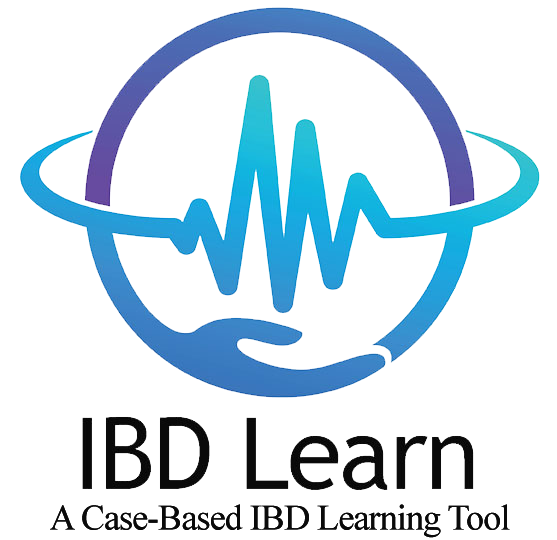Case 6
A 37-year-old woman with history of ileocolonic Crohn’s disease presents to the ED with 2 weeks of worsening abdominal pain and hematochezia. She is currently having up to 20 bloody stools per day, associated with intense tenesmus and lower abdominal pain. She also reports significant fatigue and weight loss of 30 lbs over the last 4 weeks. She was diagnosed with Crohn’s disease at age 18 and has had inconsistent treatment and follow up.
She has tried infliximab on four separate occasions, and reports that it has always been effective for her. The last time she was on it was about 4 years ago, when she was hospitalized with symptoms similar to her current presentation. She reports feeling much better after receiving infliximab but did not continue it beyond a few doses. She reports prior non-response to a trial of adalimumab. Her last colonoscopy was also 4 years ago, but she does not remember the results. She is currently undomiciled and living in the back of her van.
Notable Physical Exam Findings:
Vitals: Within normal limits
General: Thin, no acute distress
Abdomen: Soft, mild tenderness to palpation in the left lower quadrant, no rebound or guarding, non-distended, normal bowel sounds
What will your initial diagnostic work-up include? (choose all that apply, results or feedback will appear on click)
Basic labs
WBC 12.4, Hgb 12.8, Hct 39.1, Plt 606 Normal basic metabolic panel Albumin 3 Normal liver enzymes CRP 30.5
Fecal calprotectin
This is not likely to change management. The patient will need an endoscopy regardless of the result.
Stool infectious studies
Negative stool infectious studies
TB test
Great job thinking ahead! This patient will likely need a biologic, so placing a PPD or sending a Quantiferon on admission will expedite care. A PPD is placed, and can be read in 48 hours.
Hepatitis B serologies
Excellent! Hep B serologies should be checked prior to starting biologic therapy, so drawing these on admission will expedite care.
TPMT activity
If you are considering combination therapy with azathioprine or 6-MP, this would be good to check on admission.
Infliximab level and antibody
Infliximab antidrug antibody testing is likely not useful on admission given remote prior infliximab exposure; even if antidrug antibodies have previously been formed, there may not be active antibody production in the absence of antigen exposure.
Blood cultures
There are no signs of sepsis at this time. Blood cultures are likely to be low yield.
CT or MR of the abdomen and pelvis
Imaging to evaluate for penetrating complications of Crohn’s disease and define the extent of involvement is appropriate, especially in this patient who has been out of care for a prolonged period of time.
Colonoscopy
Endoscopic evaluation is mandatory to assess the severity and extent of disease, and to take biopsies to rule out superinfection with pathogens such as cytomegalovirus.
Click here to move on to the next part
